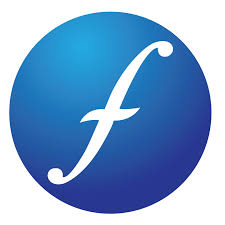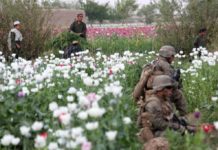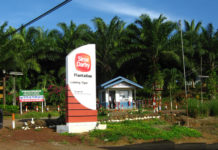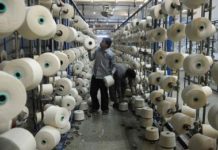By Muhammad Luqman
Pakistan’s leading pharma company Ferozsons Laboratories has announced that its subsidiary BF Biosciences Ltd (BFBL) has signed a non-exclusive license agreement with US firm, Gilead Sciences Inc for manufacturing and selling remdesivir — an experimental antiviral drug being used to treat coronavirus patients.
In a notice to the Pakistan Stock Exchange, the company said that Gilead had signed non-exclusive voluntary license agreements with five South Asian manufacturers, including Hetero Drugs, Jubilant Life, Cipla, Mylan and BFBL, to “manufacture remdesivir for distribution in 127 countries”.
“Under the agreements, the companies have the right to receive a technology transfer of Gilead’s manufacturing process for remdesivir to enable them to scale up production.”
The company added that it was “confident” that the subsidiary would produce sufficient quantities of the drug to cater to the needs of Pakistan’s Covid-19 patients as well as export it to other countries.
“The BFBL management is actively taking up the matter with the relevant stakeholders for the necessary regulatory approvals and API [active pharmaceutical ingredient] arrangements so that remdesivir is made available to patients on an urgent basis,” the notice added.
Remdesivir is an experimental antiviral drug used to treat patients with the coronavirus and was recently approved by the US Food and Drug Administration (FDA).
Gilead signs non-exclusive voluntary licensing agreements with five generic manufacturers to further expand supply of our investigational antiviral for COVID-19 in 127 countries. Learn more about our efforts to increase supply globally: https://t.co/qBoiO8HZ32.
— Gilead Sciences (@GileadSciences) May 12, 2020
On May 6, Gilead had said it was in the process of “negotiating long-term voluntary licenses with several generic drugmakers in India and Pakistan to produce remdesivir for developing countries”, adding that the company will provide “appropriate technology transfers to facilitate this production”.
Last month, Gilead had said the drug had helped improve outcomes for patients with Covid-19, the disease caused by the coronavirus, and provided data suggesting it worked better when given earlier in the course of infection.
A clinical trial of the drug in the United States showed that patients recovered about 30 per cent faster than those on a placebo, in the first proof of successful treatment against the new disease.
However, remdesivir failed in trials against the Ebola virus and a smaller study, released last week by the World Health Organisation, found limited effects among patients in Wuhan, China, where the illness was first detected in December.
The five companies-Three Indians, one Pakistan and a US-based firm have also been allowed to set their own prices for the generic product.
“The licenses are royalty-free until the World Health Organization declares the end of the Public Health Emergency of International Concern regarding COVID-19, or until a pharmaceutical product other than remdesivir or a vaccine is approved to treat or prevent COVID-19, whichever is earlier,” Gilead said.
In 2014, the company had signed a similar deal to sell a low-cost, generic version of Sovaldi, a drug used to treat Hepatitis C .It had, however, then asked the companies to pay seven per cent of their revenues as royalty fees.















